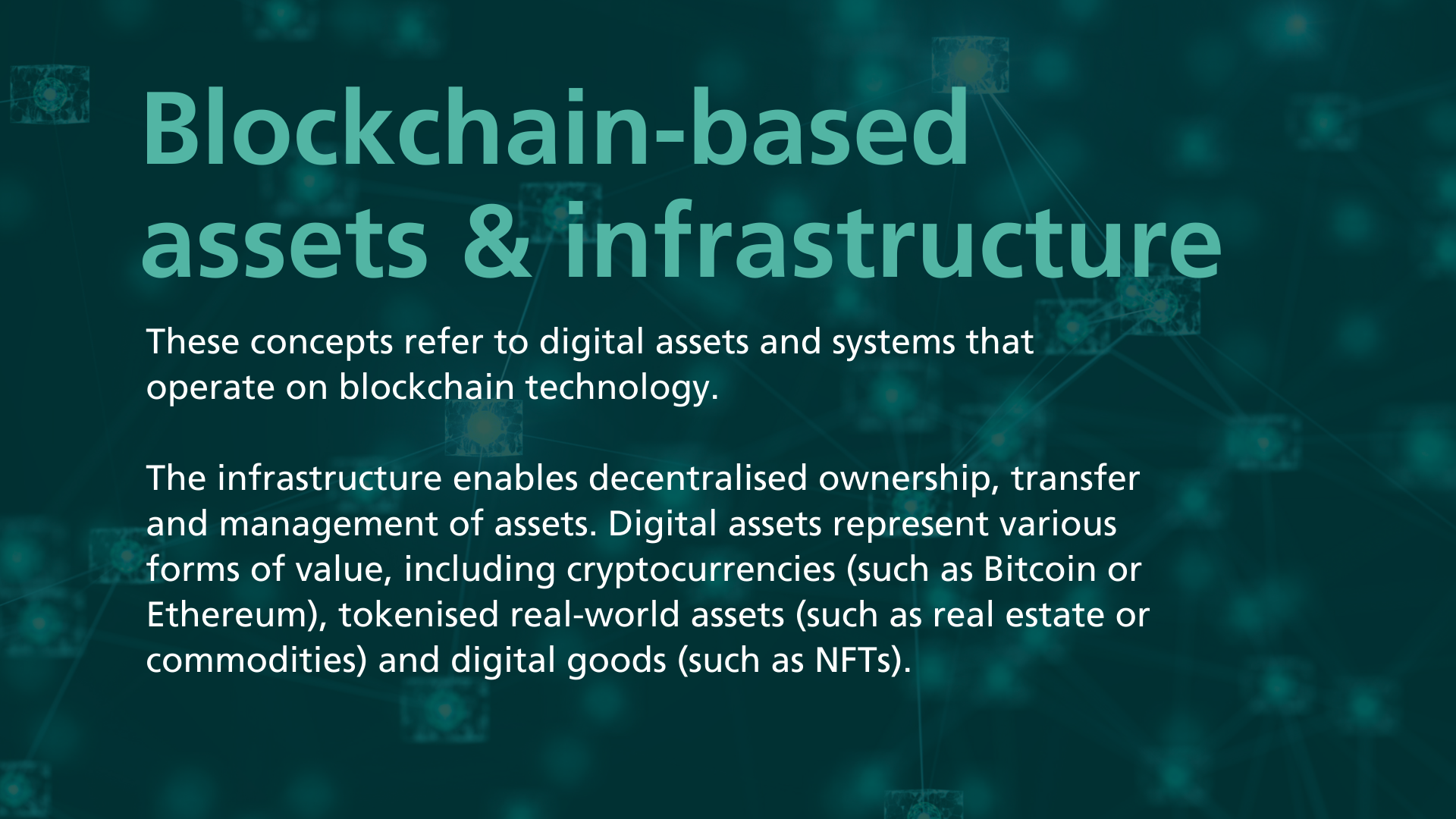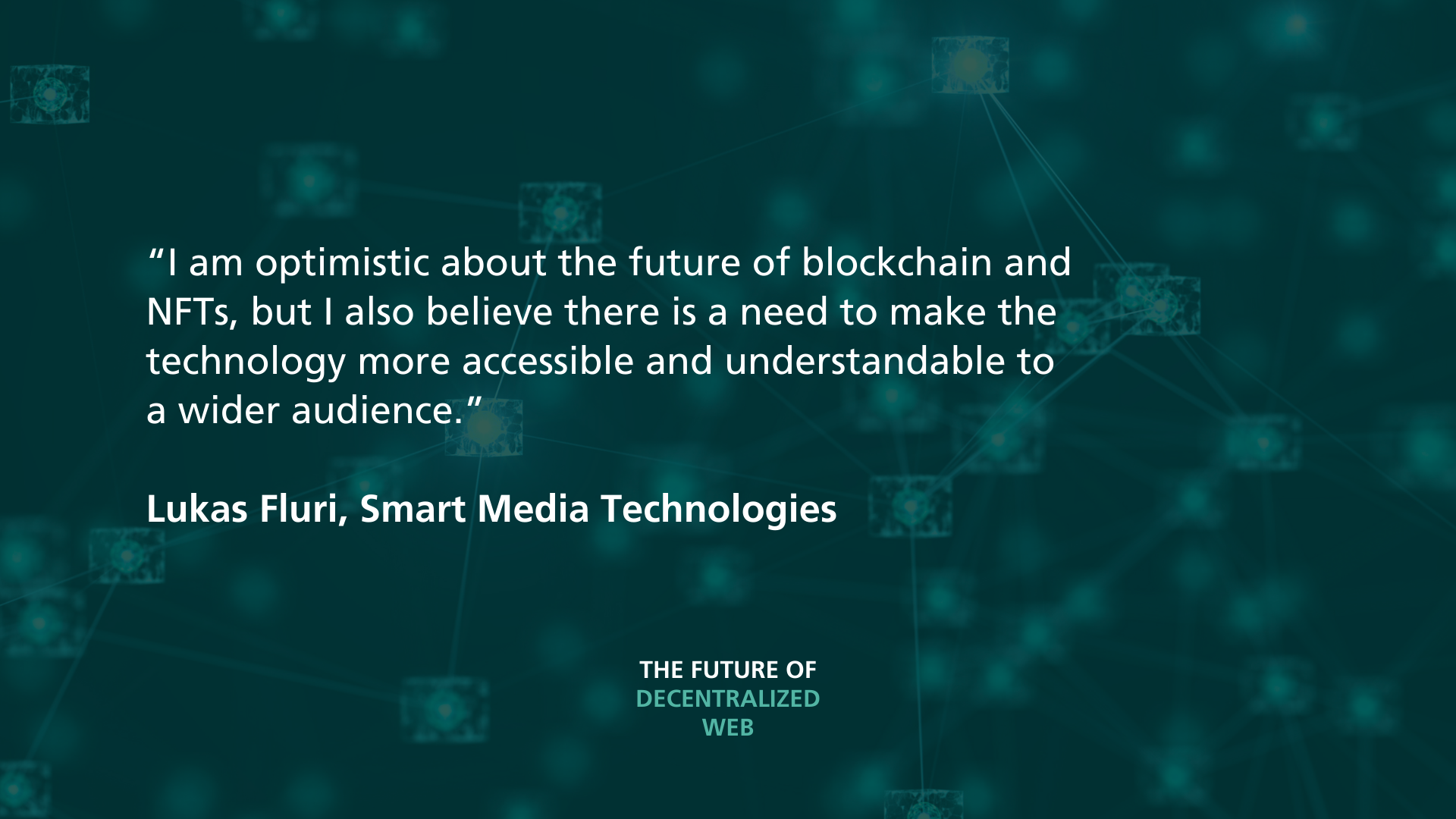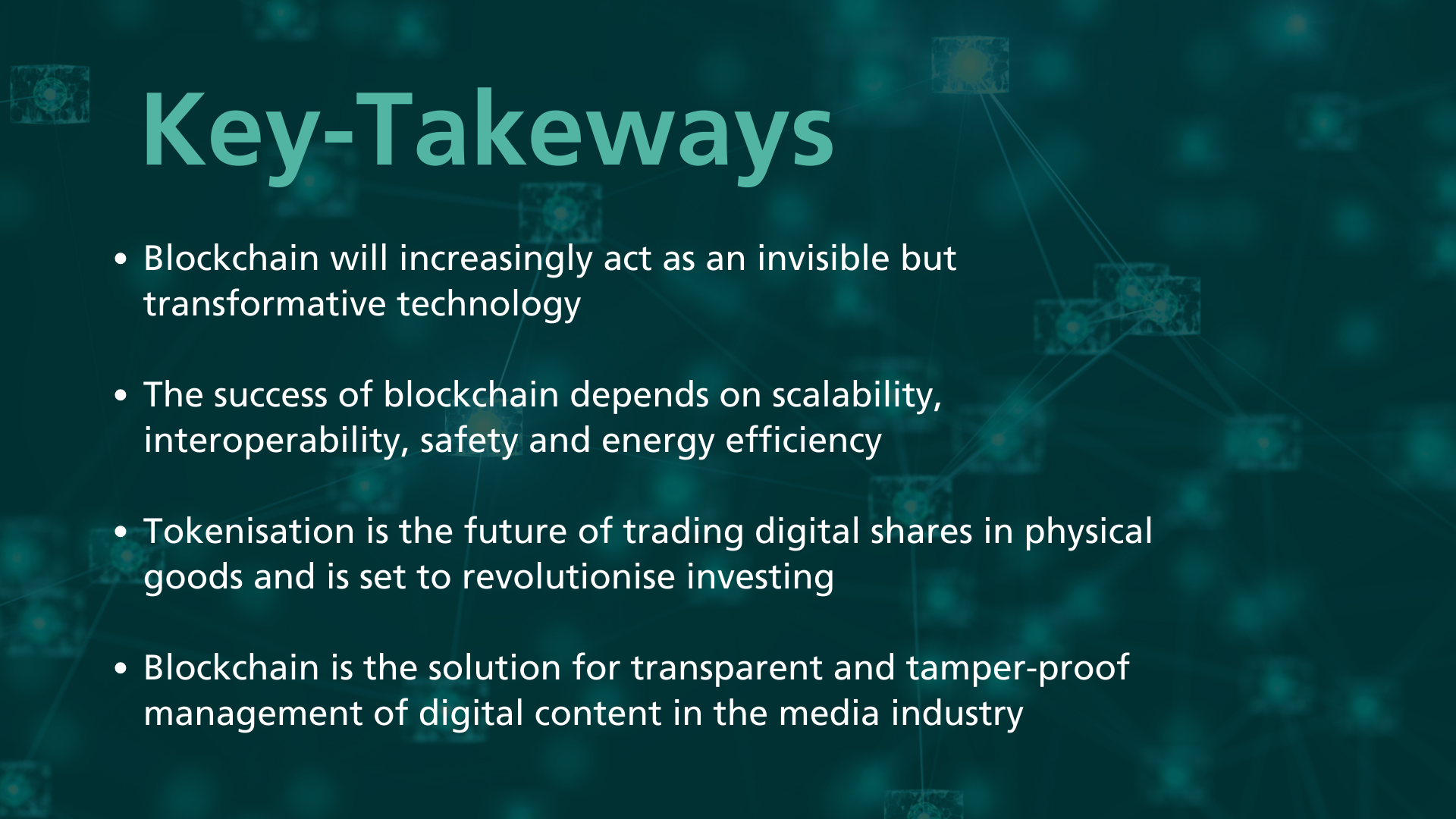
22. October 2024
Web3 outlook for the next 10 years with Lukas Fluri, CPO Smart Media Technologies
We recently published our “Crossroads Essay “The Future of Decentralized Web”. What we know about the decentralised web and what impact it will have on the German media and communications market over the next 10 years. In our interview series, we bring you exciting insights from our expert interviews and conclude the series with Lukas Fluri, CPO of Smart Media Technologies.
As an innovator and entrepreneur in the telecoms, blockchain and web3 industries, Lukas Fluri has spent his career at the forefront of technology innovation. In 2015, he recognised the world-changing potential of blockchain and co-founded what is believed to be the first platform for creating NFTs.
Blockchain technology has undergone a remarkable evolution over the past few years. What was just a buzzword a few years ago has now arrived in many areas of our society and economy. To gain a better insight into the current state of blockchain technology and its practical applications, we interviewed Lukas Fluri.

The evolution of blockchain-based assets and infrastructure
Blockchain has undergone an impressive transformation in recent years: From a once theoretical idea, the technology has become a groundbreaking driver of change, fundamentally transforming numerous industries. Although it has attracted a lot of media attention, particularly due to the hype surrounding cryptocurrencies and NFTs, its true potential lies in solving fundamental challenges in the digital world. Blockchain-based assets and infrastructures open up completely new perspectives – not only for the economy, but also for the media and many other areas.
Blockchain: from theory to practice
Although the concept of blockchain was first outlined in the 1990s, the technology only became widely recognised with the launch of bitcoin in 2008. Since then, developers and companies around the world have been working to unlock the potential of blockchain far beyond its use in cryptocurrencies and speculative markets. Today, the technology is at the centre of a global discussion on issues such as security, transparency and decentralisation across industries.
A key moment in the history of blockchain was the hype surrounding NFTs (non-fungible tokens), which brought the technology to the attention of the general public. NFTs made it possible to store and verify digital works of art and collectibles on the blockchain in a tamper-proof manner, leading to record-breaking sales. But this hype is just the tip of the iceberg – blockchain has much more to offer.
Blockchain: just crypto and NFTs?
Beyond cryptocurrencies and NFTs, blockchain is realising its enormous potential in many industries. For example, decentralised financial systems (DeFi) allow users to access financial services such as loans, insurance and investments without traditional intermediaries. This could revolutionise traditional banking structures – especially in regions where access to established financial systems has been severely limited.
Blockchain is also showing impressive promise in areas such as supply chain management, healthcare and digital identity management. By securely and transparently tracking products along the supply chain, companies can make their processes more efficient and increase customer trust. In the healthcare sector, the technology offers the potential to securely manage sensitive patient data while facilitating access to medical services.

Challenges and potential of blockchain infrastructures
Despite the enormous potential of blockchain-based infrastructures, they also face significant challenges. One of the biggest obstacles is regulatory uncertainty. Many countries still lack clear guidelines on how to handle cryptocurrencies, digital identities and smart contracts. This uncertainty often makes companies reluctant to implement blockchain technologies while the legal framework remains unclear.
Another key issue is scalability. Blockchain networks, especially those based on the energy-intensive proof-of-work process, quickly reach their limits when it comes to the number of transactions per second. Without appropriate solutions, this could hinder widespread adoption of the technology. The high energy consumption of blockchains such as bitcoin is also under scrutiny, especially as environmental and sustainability issues become more pressing.
Despite these challenges, blockchain offers immense opportunities. The tokenisation of assets could revolutionise investing, making it possible to acquire shares in physical goods, such as real estate or works of art, in the form of digital tokens. At the same time, smart contracts offer enormous potential for automating processes in areas such as real estate or insurance, which could lead to cost reductions and minimise sources of error.
The future of blockchain infrastructure
The evolution of blockchain infrastructure will be crucial in the coming years to realise the full potential of this technology. More and more industries such as logistics, healthcare and energy are relying on blockchain to ensure secure and transparent processes. White label solutions, where blockchain works in the background without the end user coming into direct contact with the technology, are particularly exciting.
An example of this is the use of blockchain by companies such as Visa, which is already using Smart Media Technologies' technology for loyalty programmes without focusing on the technical aspect. This approach shows how blockchain can be seamlessly integrated into existing systems without burdening users with complex technological details. It is this type of approach that will be key in other industries to further drive adoption and enable wider use of the technology.

Conclusion and outlook
In the coming years, advances in the scalability, interoperability and energy efficiency of blockchain technologies will ensure that they become an integral part of many industries. Businesses will increasingly rely on blockchain to manage digital assets, data and services more efficiently. However, the true power of blockchain lies not in speculative hype like NFTs, but in its ability to solve real-world problems and drive digital transformation.
Blockchain is increasingly becoming the invisible enabler of the digital economy – a technology that optimises processes, creates security and promotes trust without burdening users with technical details. The coming years will show just how profound the impact of blockchain will be on the way we live and work.
Would you like to know more? Exchange ideas with us? Please feel free to write to us: Strategie(at)stroeer.de
Media content in this blog post was created with the help of AI.


